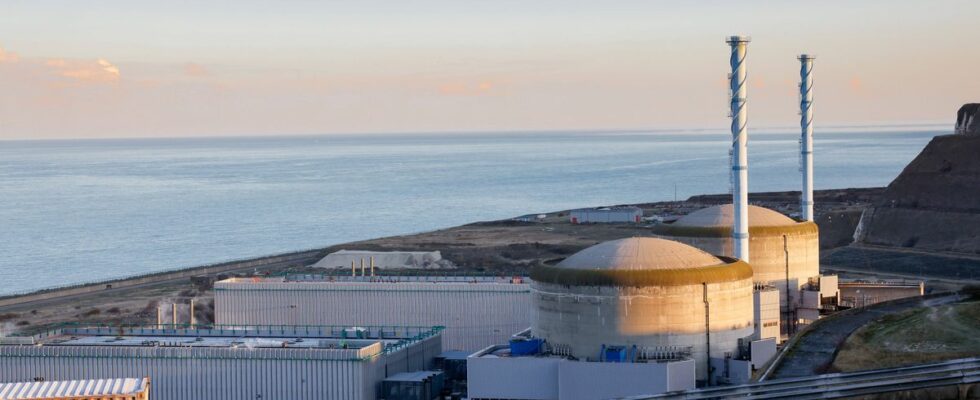First a bill on the construction of nuclear reactors, then a text on renewable energies, and finally a bill on energy programming which must set the trajectories of France in each energy. It is in this order that the two Chambers are called upon to discuss France’s energy future, the first two texts having already been discussed. A calendar contested by parliamentarians, who accuse the government of legislating in disorder. “We must respect public debate,” insisted the Minister for Energy Transition Agnès Pannier-Runacher.
Carried by a majority on the right, the Senate was therefore to vote on Tuesday evening a very technical bill, aimed at promoting the construction of new nuclear reactors. Mission accomplished, with 239 votes for and 16 against, at the cost of a very uninhibited version of the text. Examined in March at the Assembly, this version simplifies administrative procedures in order to promote the construction of new reactors. It is “the first stone of a huge project for the revival of nuclear power in France”, underlined Bernard Buis (RDPI).
Expropriations facilitated, constructions without public inquiry initiated
The bill is limited to new installations located on existing nuclear sites, or near them. This for a period limited to 15 years in the initial text, increased to 27 years by the Senate. Concretely, the sites will be exempted from town planning authorisation, the control of conformity being ensured by the State. The right of expropriation will be relaxed. Or even work on buildings not intended to receive radioactive substances could be started before closing the public inquiry.
According to Agnès Pannier-Runacher, these provisions will “avoid adding a period of two to three years to the construction of a reactor”. While Emmanuel Macron has announced that he wants to build at least six new reactors, the next two EPRs should be located in Penly, in Seine-Maritime. Objective “rather late 2027” for “the first pour of concrete” and “2035-2037” for commissioning.
“A democratic masquerade”
The senators have widened the scope of this technical text, by breaking down the “bolts” of the current energy programming law. In particular, they removed the objective of reducing the nuclear share of electricity production to 50% by 2035 and imposed the revision of the decree which provides for the closure of 12 existing reactors, in addition to the two in Fessenheim. Provisions which may be reviewed in the wake of the parliamentary shuttle but which have aroused strong reactions.
Greenpeace France and the Nuclear Sortir network announced in a joint press release “leaving the public debate” underway on future reactors, denouncing “a democratic masquerade”. The organizers of this public debate were also alarmed by the turn of the discussions in the Senate. Chantal Jouanno, the president of the National Commission for Public Debate, “is outside the realities”, reacted Gérard Longuet (LR) in the hemicycle.
The text on renewable energies weakened?
“Nuclear must be the spearhead of French energy policy for the next 30 years,” said centrist Amel Gacquerre, noting however that “central issues are not addressed” in the text, in particular financing. The senators also adopted amendments aimed at integrating the risks linked to climate change in the demonstration of safety of reactors and cyber-resilience, and increased the penalties for intrusions into the plants. “A panel of measures for a maximalist revival of nuclear energy”, criticizes the ecologist Daniel Salmon.
Above all, by blowing up the nuclear ceiling in the energy mix, this text makes the one on renewable energies, discussed between the two chambers at the same time, wobbly. In addition to the Republicans and the centrists, the majority Renaissance and Independent RDPI groups and the majority of the predominantly radical RDSE group voted in favor of the text. The ecologists voted against, the majority communist PS and CRCE groups abstained.

